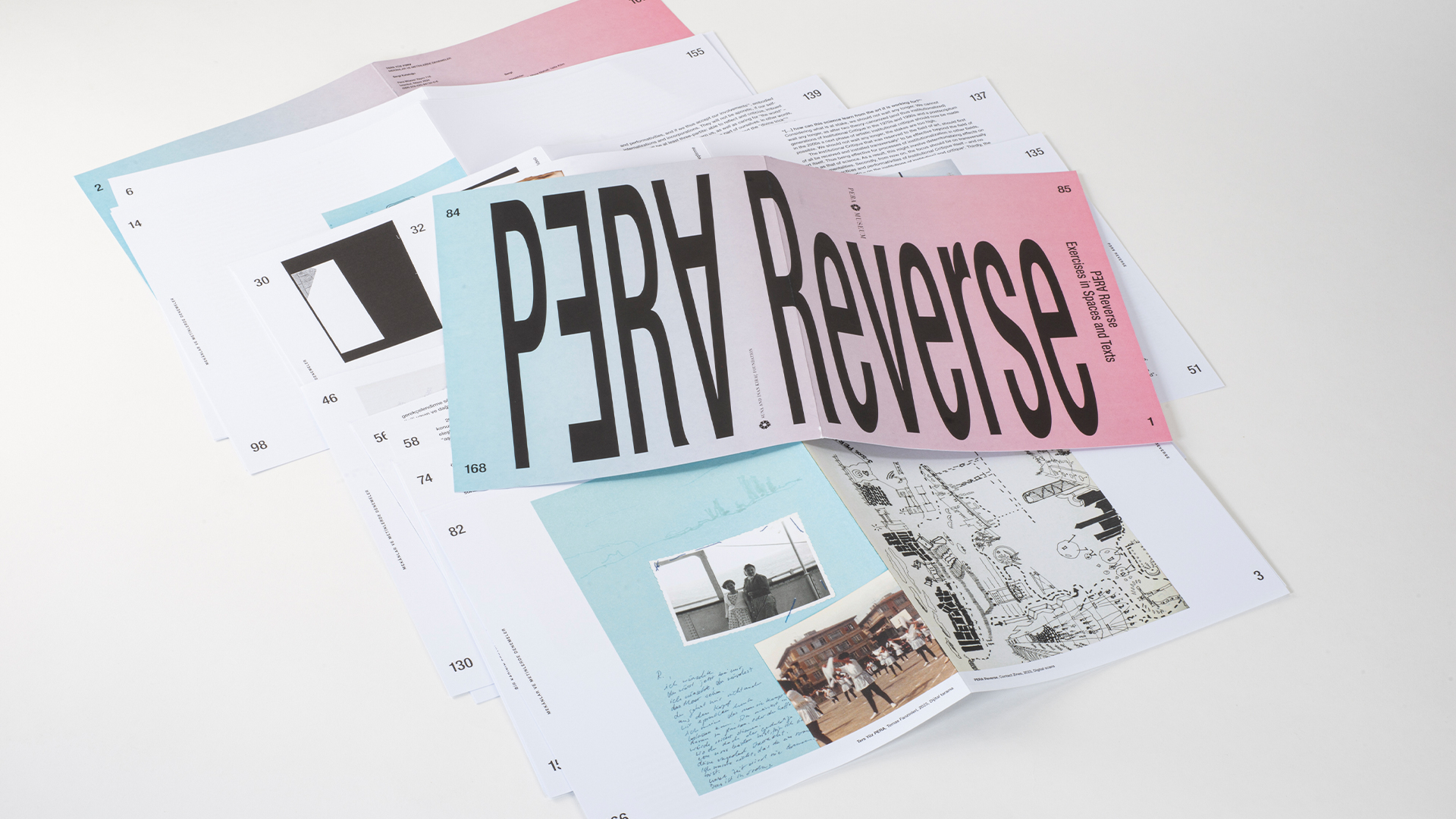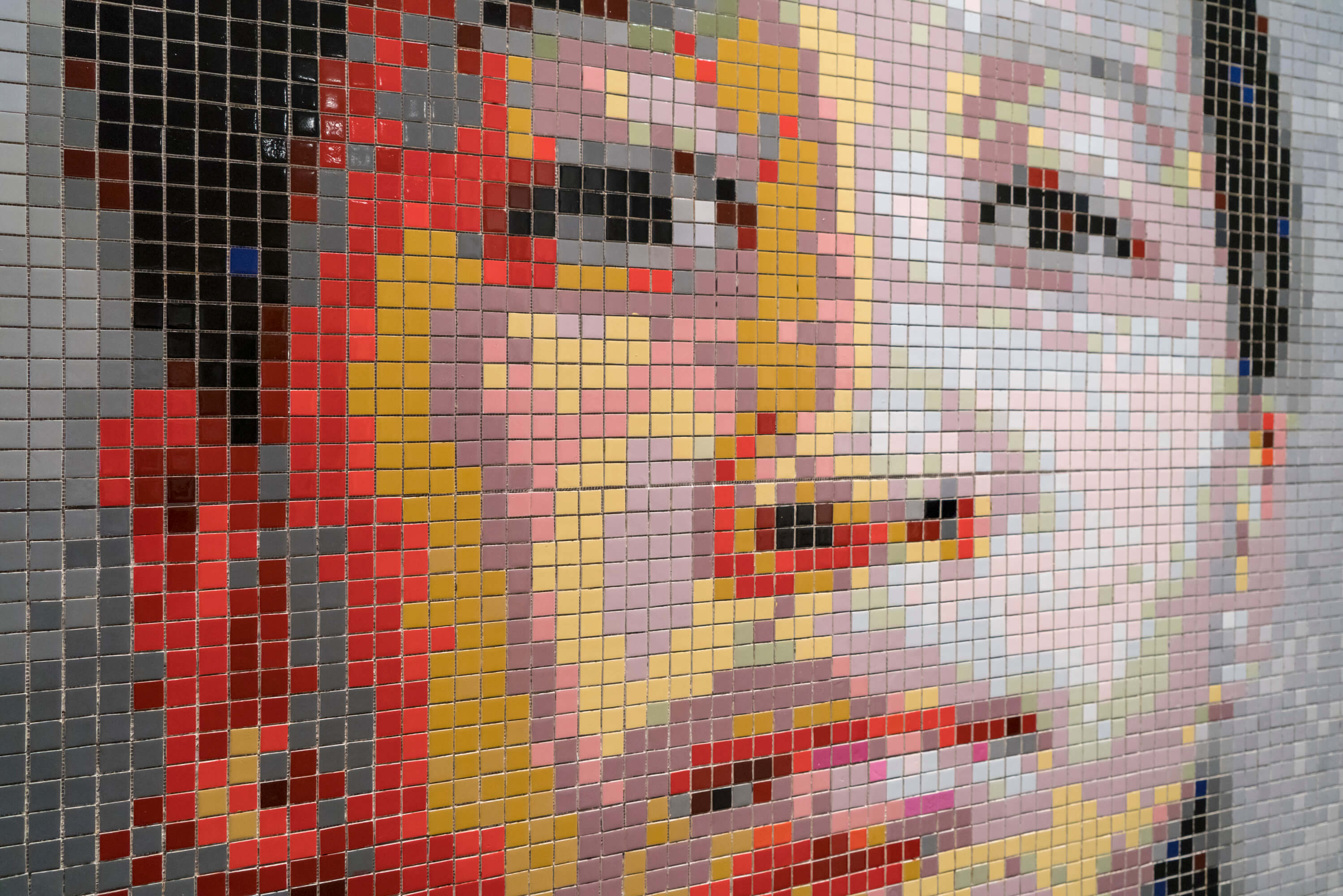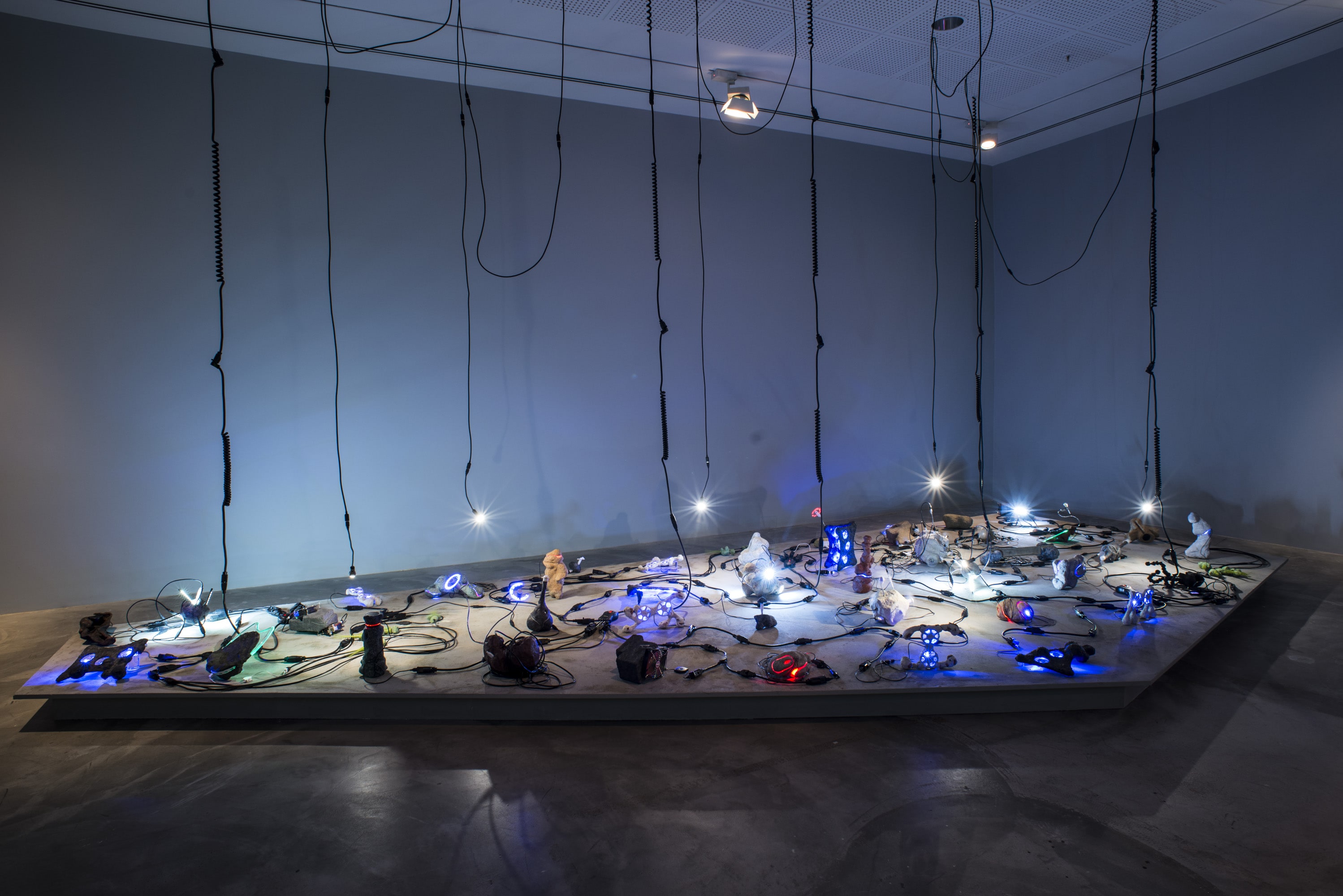May 23 - August 18, 2024
Pera Museum presented the exhibition PƎRⱯ Reverse* in collaboration with Bauhaus-Universität Weimar’s “Practices and Politics of Representation” class, led by Prof. Mona Mahall with Yelta Köm, and Hochschule für Künste Bremen’s “Temporary Spaces” class of Prof. Aslı Serbest. The exhibition brought together multiple perspectives on contemporary art spaces and their urban neighbourhoods in Istanbul, moving between high and popular cultures. Departing from two paintings in the Suna and İnan Kıraç Foundation’s Orientalist Painting Collection, the participants explored global capitalist relations and localized cultural practices in art, as well as the role of architecture in both establishing and revealing the ways in which institutions mediated and operated in relation to their urban environments in a specific place and time.
PƎRⱯ Reverse consisted of three parts, entitled “Globals,” “Steps,” and “Speculations.” In “Globals,” adaptations of light signs, pools, a Guzmania plant, and the smell of detergent mimicked and exposed the global city as a ruin, while the low-hanging chandelier borrowed from the Pera Museum’s Art Deco café emphasized the institution’s glamorous fragility. “Steps” addressed the trauma that came with the reality of representation, which failed to enact the world—or, in this case, the complex and fragmented urban topography of the Pera area, full of different stairs and ramps. They highlighted the absurdity of the universalist dream of form and norm promoted by Bauhaus modernism in particular and Westernized modernity in general, with its linear concepts of progress, the nation-state, and the rigid politics of physical and metaphysical borders. “Speculations” commented on the increasingly abstract and transnational processes of global economic, political, and aesthetic speculation and valuation that performed violence differently—through ongoing operations of unequal exchange. The exhibition speculated on alternative values by exploring local non-profit art spaces and engaging cultural workers and visitors in a public program.
* PƎRⱯ Reverse proposed themselves as an institution—one in the process of self-instituting a set of shared practices—to explore the role of (cultural) institutions in different places in a world that was both increasingly connected and fractured. They brought together a shifting group of artists, architects, and researchers from Istanbul, Ankara, Izmir, Tehran, Hong Kong, Osaka, Berlin, Bremen, Weimar, and other German cities.
Contributors
Anıl Aydınoğlu, Arın Aydın, Aslı Serbest, Ayça Tuğran, Çisel Karacebe, Celal Orkun Gözübüyük, Dorian Beer, Elizaveta Boucke, Elif İmre Bilgin, Helen Christina Hümmer, Iben Schneider, Jolina Mix, Çisel Karacebe, Jisu Kim, Kitman Yeung, Leonie Link, Mona Mahall, Negar Rahname, Talia Ölker, Yelta Köm, Yuhe Lin
Image Credits
Collective Work
Fragments from Contact Zines
Leonie Link
Porous Borders Bordüre
Ayça Tuğran
Ethnic Set
Collective Work
Fragments from Contact Zines
Leonie Link
Porous Borders Bordüre
3D Virtual Tour
Exhibition Catalogue

PƎRⱯ Reverse Exercises in Spaces and Texts brings together multiple perspectives on current art spaces and their urban neighborhoods in Istanbul, moving between high and popular cultures. Organized in collaboration with Bauhaus-Universität Weimar’s “Practices and Politics of Representation” class, led by Prof. Mona Mahall with Yelta Köm, and the University of Arts Bremen’s “Temporary Spaces” class of Prof. Aslı Serbest, PƎRⱯ Reverse consists of three parts, entitled “Globals”, “Steps”, and “Speculations”. Departing from two paintings in the Suna and İnan Kıraç Foundation’s Orientalist Painting Collection, the exhibition also explores global capitalist relations and localized cultural practices in art.
Pera Learning
Parallel to PƎRⱯ Reverse, the program offers fun, creative, and inspiring exhibition tours and workshops for adults of all ages.
The program parallel to PƎRⱯ Reverse includes enjoyable workshops for adults of all ages, focusing on deconstructing and reconstructing the existing structure through various disciplines.

The exhibition “Look At Me! Portraits and Other Fictions from the ”la Caixa” Contemporary Art Collection” examined portraiture, one of the oldest artistic genres, through a significant number of works of our times. Paintings, photographs, sculptures and videos shaped a labyrinth of gazes that invite spectators to reflect themselves in the social mirror of portraits.

He didn’t expect this from me. And I hadn’t expected that we would decide to get married that day, at that moment. Everything happened all of a sudden, but exactly like it was supposed to happen in our day. We thought of the idea of marriage simultaneously, we smiled simultaneously, blinking and opening our eyes in unison.
Tuesday - Saturday 10:00 - 19:00
Friday 10:00 - 22:00
Sunday 12:00 - 18:00
The museum is closed on Mondays.
On Wednesdays, the students can
visit the museum free of admission.
Full ticket: 300 TL
Discounted: 150 TL
Groups: 200 TL (minimum 10 people)